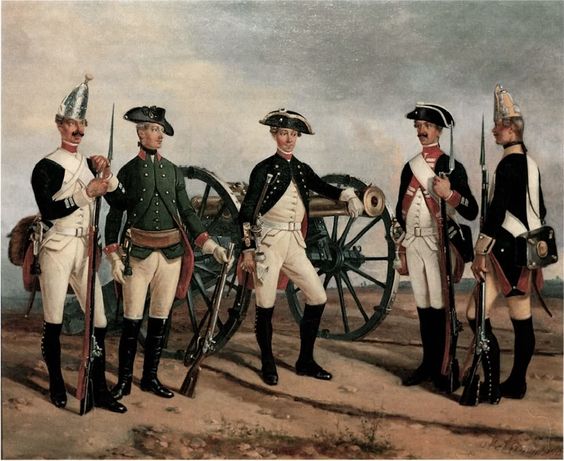5.7. 1778 War of the Bavarian Succession
Categories: Calendar , Nálezy nejenom s detektorem v západní Evropě

Prussia paid with twenty thousand human lives for the armed conflict that broke out in July 1778. The War of the Bavarian Succession is also known as the Potato or Plum Mela.
The armed conflict between Austria and Prussia over the Bavarian Succession from 1778 to 1779 is one of the semi-forgotten wars. For some, it is even an unknown manifestation of the power rivalry between the Habsburg monarch Maria Theresa and the Prussian king Frederick II.
"The reasons why the War of the Bavarian Succession has so far stood outside the mainstream of attention from historians and the public alike are many. It lasted less than a year, and no major battle was fought in its course, which made it a major issue in Austrian official circles.historian Miroslav Šedivý writes in his book On Plums and Potatoes: The Prusso-Austrian War for the Bavarian Succession 1778-1779.
The fact that the Prussian soldiers were more occupied with foraging for food, especially potatoes and plums, than with warfare, caused the simplePrussian king himself referred to it with contempt as the "potato war". And since it was ultimately decided not by soldiers on the battlefield but by diplomats at the round table, the Austrian marshal Ernst Gideon von Laudon saw it as a dog war waged by politicians.
"These disparaging labels only illustrate the fact that immediately after the end of this war, all sides wanted to forget it. The reputation of Frederick II. The reputation of Frederick the Great as a great military leader had suffered, while the Viennese court could not be satisfied with theThe result was that Austria gained only a very small territory on its western border," says Šedivý.
It should be added that Maria Theresa, for example, was opposed to a possible war. However, the conflict between the two traditional rivals became fatally inevitable in the spring of 1778. This conflict should not fall into oblivion, because the battlefield was almost exclusively Czech lands - especially northern and north-eastern Bohemia. To a lesser extent also northern Moravia and Austrian Silesia. And it was there that the greatest loss of life and the greatest suffering of the common population occurred.
And the result? The conflict was brought to an end with the signing of the Treaty of Teschen, under which the Elector Karl Theodor of Lower Palatinate took over the government of Bavaria. Austria gained only a small territory southeast of the confluence of the Inn and the Danube, where about 60,000 people lived.
Sources:
Miroslav Gray, Of Plums and Potatoes: The Prusso-Austrian War for the Bavarian Inheritance 1778-1779
Petr Čornej, Jiří Pokorný, Milena Bartlová, The Fateful Eight: The Turning Years in Czech History
www.wikipedia.org
https://weaponsandwarfare.com/
The article is included in categories: